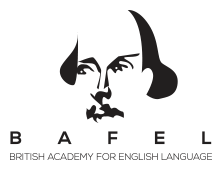THINK!

Creative Thinking Skills
SYNOPSIS
Creative thinking is among the most sought-after life and work skills in the 21st century.
It provides the perfect complement to critical thinking by challenging students to think ‘outside the box’. BAFEL’s creative thinking skills training increases students’ ideation skills, and more importantly their cognitive flexibility.
OBJECTIVES
- Learn the difference between critical and creative thinking skills.
- Learn multiple creative-thinking techniques.
- Recognise the difference between left and right brain thinking.
- Learn how to brainstorm effectively.
- How to get past naysayers and negative people.
Critical and Analytical Thinking Skills
SYNOPSIS
Analytical and critical thinking skills is your ability to apply logical thinking, break down complex problems into manageable components objectively, and make a reasoned judgement by evaluating information. Students not only learn techniques on how to unpack a problem in their real world, but also in their studies. This programme is particularly suitable for students interested to learn how to implement a process, problem solve, boost their comprehension skills and increase their cognitive awareness of situations around them.
OBJECTIVES
- Learn the basics to implement a process for data analysis.
- Know how to focus on the most critical information.
- Understand the relationship between logical, analytical and critical thinking skills.
- Apply critical thinking techniques in the problem-solving process.
- Realise the difference between linear and non-linear thinking.
Junior Philosopher
SYNOPSIS
What could a 8 to 16 year old make of Immanuel Kant’s Critique of Pure Reason? Students debate questions like “What is art?,” “What’s a refugee?” or “If children led society, what would change?” Many educators have emphasised the importance of bringing philosophy to schools and BAFEL has done just that. From ethical dilemmas to imagining new realities, our signature programme is one of its kind.To quote the IrishTimes: ‘It comes as a fresh wave of research highlights the benefits of philosophy for children (or “P4C”). A study at Durham University of 3,000 pupils in 48 state primary schools published last month associated P4C with significant gains in children’s literacy and maths scores, and even improved conduct. A Forbes article by Davide Banis discusses why it is important to expose children to philosophy, philoosphical debates and the process of thinking how to think.
OBJECTIVES
- Develop confidence and responsibility by making students aware of issues around them and talking about their views and opinions.
- Learn critical thinking and enquiry.Present information and points of view clearly and appropriately in different contexts.
- Listen and respond constructively.
- Reflect on different opinions, ideas and beliefs.
